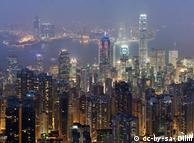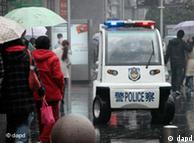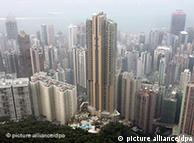新闻报道 | 2011.03.07
外国驻华记者受威胁
在周一的全国人大会议记者会上,中国外长杨洁篪回答记者提问时说,"你说最近国内好像比较紧张,我没看到有什么紧张嘛。...我们不希望任 何人无事找事,无事生事。"之后,杨洁篪回答有关外国记者的问题时说:"中国是法治国家,我们依法办事。我们一贯地依法做记者的管理工作,同时,为记者合 法、合理的采访,提供各方面的便利。这一政策不会改变。我们将继续为记者依法、合理的采访提供各方面的便利,也希望外国记者能够遵守中国的法律法规。"
然而,实际情况是,中国政府为应对近日的茉莉花集会投入了自2008年奥运会以来的最大规模的警力。效仿阿拉伯世界呼吁举行的茉莉花集会已经连续三个周日举行。当局投入大规模警力以防止火种蔓延。外国媒体受到极大压力。
刚刚过去的周末,政府有关人员拜访德国和其它国家驻华记者,警告他们遵守法律。这些德国记者来自《法兰克福汇报》、《经济周刊》和德国电视一台等。 他们中多人一出门即被跟踪,尤其是一周前被扣留数小时的德国电视一台和二台记者。德国电视二台记者韩诚(Johannes Hano)表示:"我们受到监控。也有迹象显示,有人趁我们不在家的时候进入过我们的住所。这令我们忧虑。"德国电视一台记者阿德哈尔特 (Christine Adelhardt)则表示:"我们周末受到大规模监控,工作人员收到恐吓电话。有可疑人员在办公室门口徘徊。"
杨洁篪:不存在警察打外国记者的问题
美国有线电视新闻网CNN、彭博新闻社、《纽约时报》也受到电话或登门警告。《纽约时报》写道:"突然之间,外国记者就受到与政治异见人士同样的跟 踪和扣押,--即便没有那么粗暴。"数十名外国记者上周被警方问话。他们被告知,未来采访报道需要获得许可,否则会被逮捕或驱逐出境。德国电视一台记者赖 默斯(Ariane Reimers)表示,一位中国官员告诉她,一些外国媒体存在问题,报道不客观。赖默斯说,警方可以决定是否取消外国记者的工作许可,甚至采取司法措施。
上周五,包括德新社在内的数十名外国媒体记者被叫到中国外交部训话。最终仍不明确,究竟哪些采访报道还是允许的。但很明显,如今有决定权的不再是外 交部,而是国安部门,正如一些警官之前强调过的一样。十余名德国和其它国家的记者上周末在北京和上海被扣押。香港大学中国媒体项目的班志远(David Bandurski)表示:"中国强硬的公共外交在过去几个周末明显失败。"
北京市政府周日还表示,彭博社记者恩格勒(Steve Engle)一周前受到粗暴攻击的调查还在进行。但中国外长杨洁篪周一已经知道了结果,他在记者会上说,不存在警察打外国记者的问题。
作者:Andreas Landwehr 编译:苗子
责编:洪沙
人对6000港币说不
1 / 2向前
示威活动变成暴力冲突
3月6日,许多人香港人走上街头,以示威游行的方式表达自己对政府这种"一刀切"做法的不满。据此次示威游行的组织方称,大约有10000名香港人 参加了的抗议活动。而警方公布的数字为6300人。示威活动末期,参与者与警方展开了暴力冲突,香港保安局局长李少光在事后向媒体表示,对于示威游行演变 成暴力冲突感到遗憾,并谴责暴力行为。他表示有3名警员在事件中受伤,目前1人仍在医院观察。据德新社报道,警察逮捕了超过100名示威者,包括两名12 岁及13岁的男性未成年儿童。警方在冲突过程中使用了胡椒喷雾剂,造成一名8岁儿童受其影响。被逮捕的大部分民众于周一早间获得保释。
此次活动的主办方代表,香港立法会会员刘慧卿称,示威游行活动本身是在和平理性的气氛中举行的,没有发生暴力冲突事件。与警方发生暴力冲突的是当天示威游行结束后留下来的一小部分人群。
有部分报道将香港这次示威抗议活动称为"紫荆花革命",意在支持匿名人士通过互联网在中国大陆各大城市号召举行的"茉莉花革命"。作为本次抗议活动的主办方之一的代表,刘慧卿称,此次香港的反政府预算游行并没有提出"紫荆花革命"或是支持"茉莉花革命"的想法。
香港时事评论员邱震海表示2月6日的港人示威游行与大陆"茉莉花革命"没有任何联系。"他就是孤立的一个反对预算案的事,其中就是融和了很多的暴力元素在里面。因为以前香港的示威游行相对比较平和,最多有些冲撞, 昨天还用了一些很激烈的手段。所以当局出来谴责。"
示威港人请愿 对"发糖"并不领情
刘慧卿称,此次参加示威游行的港人希望向政府表达的信息包括他们对香港高房价以及公共廉租房紧缺情况所持的不满态度。在教育制度上,示威者要求香港 政府能够提供15年的免费义务教育,并减少学校班级的人数。另外他们也向特区政府表达了对社会贫困现象以及贫富差距逐渐加大的不满。
针对通货膨胀以及贫富差距加大带来的压力,香港政府最近公布的财政预算包括向每一位年满18岁的香港永久居民一次性发放6000港币的政府补贴。可 是部分香港人却对此并不领情。刘慧卿解释说,因为人们觉得这个不是最好的用香港人钱的方法。他们希望政府有一点远见,不是就看当前的问题。而能做长远安 排,并希望政府在改善房屋、医疗、教育及退休保障方面多做一些努力。"
邱震海称,许多港人上街游行的原因包括他们对政府这种"一刀切"的补贴方式非常不满。他们认为政府在推出此项财政补贴的过程中没有顾及到弱势群体的特殊需求。

香港政府"骑虎难下"
刘慧卿透露,香港政府本来没有"派放"6000港币的计划。特区政府在一项长达6月的咨询中,向公众以及立法会议员征求了针对政府最新财政预算案内 容上的建议。在此过程中,没有任何人提议政府应该直接向市民发放现金补贴。随后,香港财政司司长曾俊华在预算案中公布了将动用24亿港币的资金,存入港 人"退休金计划"账户中,每位达到香港法定退休年龄,也就是说65岁的香港居民,无论工资高低,都可以从其退休金账户中将此笔款项提出。
此议案一推出,就遭到许多香港市民的异议。许多香港市民,包括中产阶级都表示,既然政府要出台这样的补贴政策,就应该立刻发放相关款项。刘慧卿称, 香港市民的这种不满情绪引起了立法会中"保皇派"议员的恐慌。中央政府邀请立法会中亲近北京政府的议员开会,会议结束后,香港政府随即宣布将放弃把 6000港币的政府补贴注入退休金账户的做法,转而直接将相关款项"派发"给符合条件的香港市民。
来自北京的压力
香港有舆论报道,此次香港政府退步过快,显露出弱势政府的特征。邱震海分析说,这反而会使抗议者认为,只要他们抗议,政府就还有后退的空间,而这实 际上引发了更强的抗议。刘慧卿认为,港府的这种匆忙妥协,也是中央政府在与立法会亲北京派开会的过程中施加压力的结果。她说:"因为现在北京在开两会嘛, 你在香港搞什么革命呀,搞什么游行啊。所以我相信北京一定骂他们一顿,让他们(立法会亲北京派)去搞妥这个事情。因为从来没有人叫他派钱(发钱)的,但是 当他的提议出来以后,当然就不能收回了。"
目前就什么样的人才有资格领取香港政府这6000元的补贴尚无明确规定。刘慧卿透露,一些虽然有香港居民身份,可是没有居住满7年的市民很有可能会被排除在外。而且目前这项政策对一些长年居住在海外,却拥有香港永久身份的人群是否有资格领取这一补贴也没有明确规定。
作者:任琛
责编:叶宣
2011/03/08
 Police confront a group of people in the Xidan commercial district in central Beijing on Sunday. (Noboru Tomura)
Police confront a group of people in the Xidan commercial district in central Beijing on Sunday. (Noboru Tomura)
BEIJING--A more heavy-handed blanket of security shrouded major Chinese cities Sunday, as police randomly questioned students, rounded up foreign journalists and other perceived trouble-makers and forced shops designated as gathering points for demonstrations to close.
Pro-democracy rallies intended to resemble the Jasmine Revolution that toppled the Tunisian government had been called in about 40 Chinese cities Sunday.
With the National People's Congress convening Saturday, Beijing had already been subjected to stifling security. Authorities added another layer of security while trying to discourage the foreign media from showing up at the demonstration points.
"The unrest that was seen in the Mideast and in North Africa cannot occur in Beijing," Wang Hui, a spokeswoman for the Beijing city government, said at a news conference at 2 p.m., the time set for planned demonstrations. "That is because the Chinese Communist Party's leadership and the government's policies are in line with the public opinion."
To ensure the public toed the line, security officials assigned to prevent demonstrations for a third consecutive week were devising increasingly heavy-handed methods.
In Beijing's Xidan commercial district, a plainclothes police officer stormed into a shoe shop and ordered the owner to close his store or risk having his business shut down.
A restaurant designated as the rendezvous point for demonstrators temporarily closed at 2 p.m.
A restaurant employee said the store would be closed for three hours until 5 p.m. for "fire drills." But there were no signs such drills took place.
Police prowled the neighborhood using video cameras to record every passing face. At least one foreign journalist was taken into custody.
In Wangfujing, another major commercial district in central Beijing, police stood watch at intervals of 10 meters near a restaurant named as the gathering place for demonstrators.
Plainclothes police equipped with radio transmitters and earphones kept a vigilant eye out for university students, foreigners and other "suspicious" people.
Police stopped those people, demanded identification and searched their personal belongings.
One woman who was carrying a large single lens reflex camera found herself surrounded by police officers who pointed two video cameras at her.
According to the Hong Kong-based China Information Center for Human Rights and Democracy, the municipal government in Xian, Shaanxi province, instructed universities to keep their students off the streets. At least 11 universities closed their gates on Sunday, according to the center.
The People's Square in Shanghai, another designated rallying point, exuded an eerie atmosphere as theaters were closed on a normally busy weekend day for the second straight week.
Hundreds of security officials were closely monitoring passers-by.
Just after 2 p.m., police spotted a Japanese television reporter in a crowd at a bus stop across the street from one theater. The reporter was told he had to present his credentials and was soon whisked away to a police station.
Amid the stifling atmosphere, journalists have kept their pens, notepads and cameras hidden. But police still picked up journalists who were simply walking down the street or making phone calls inside shopping facilities.
Near the People's Square, an impromptu press registration center had been set up. An underground passageway from that center led to the basement of a police station.
Seven Japanese reporters, including one from The Asahi Shimbun, were among a dozen or so foreign journalists questioned at a "lounge" at the police station basement. Some of the other journalists were from Germany and Spain.
Following the first call for demonstrations on Feb. 20, Beijing officials stressed that the media must register in advance to report from the streets of Wangfujing.
At the Beijing city government news conference Sunday, many journalists vented their frustration at Beijing's high-handed approach by questioning the legitimacy of controlling reporting in a public space.
(This article was written by Daisuke Nishimura, Koichi Furuya and Atsushi Okudera.)


沒有留言:
張貼留言